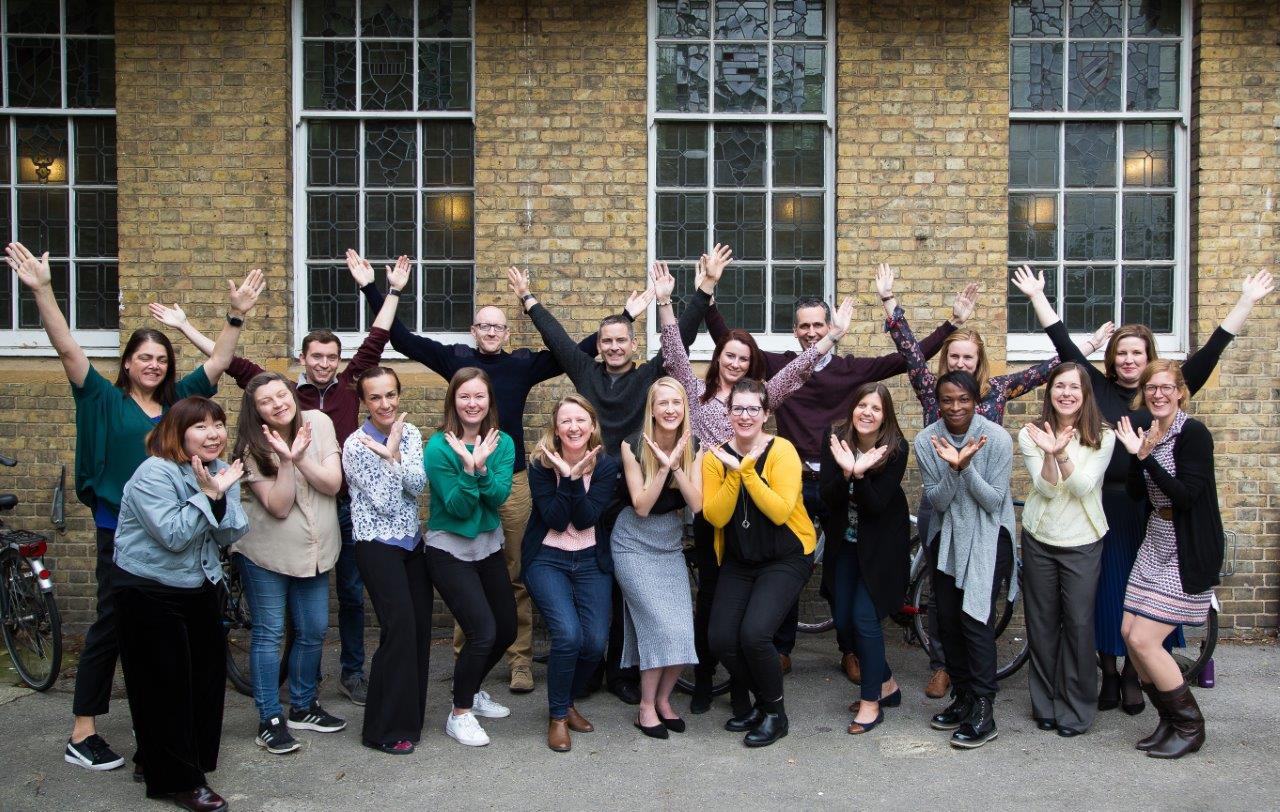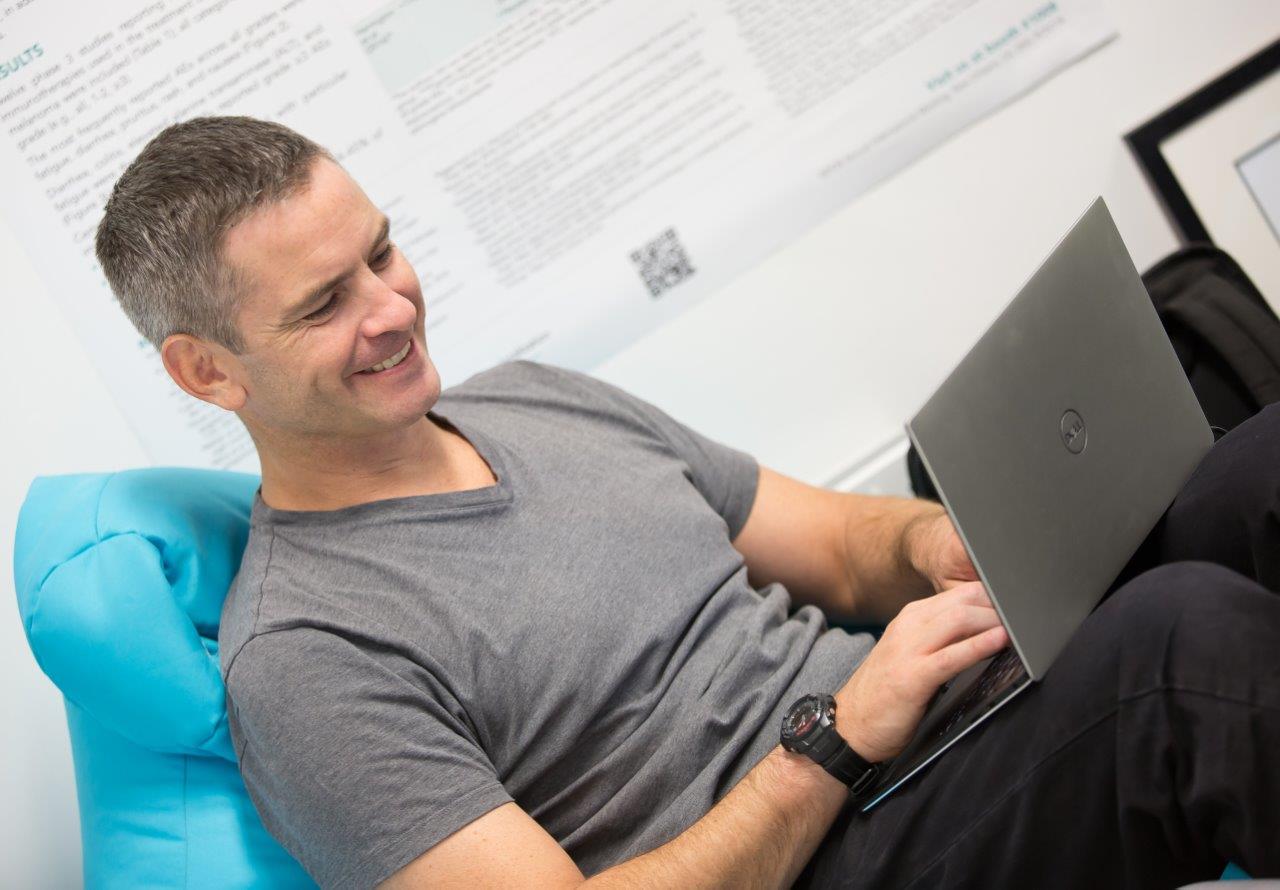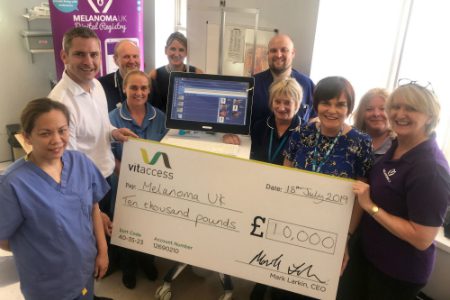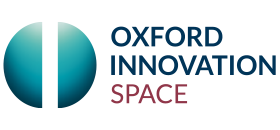Why did you start Vitaccess?
My background is in health economics and consulting, where we worked with clients who were interested in generating data, and I advised in many areas, one of which was strategy. However, historically, gathering this type of data was typically done by people with clipboards in supermarket car parks asking the public questions. That's hugely inefficient and expensive and clearly there were better ways of doing it. So, I thought there's an opportunity for doing this type of work using smartphones, as most people nowadays have one, and click, Vitaccess was born!
What challenges did you face early on?
One of the key hurdles we experienced, and it’s the same in most start-ups, is recruitment! I remember distinctly when I tried hiring Coralie, who is now our senior marketing and communications manager, that at the time it was a challenge as we didn’t have a 10-year track record to impress her with. However, as a start-up you do attract a certain type of person who has the excitement and enthusiasm for a challenge, which does help. As you develop as a business this hurdle reduces as you have the results and a track record to start impressing people and providing them with confidence.
The second hurdle we faced was commercial, where you must convince clients that what you're suggesting to them is viable and a good idea, as once again you haven't got a track record. However, we managed to get around this with the help of networks we built over the years.
What is the benefit to the user?
We think about this as the “What's in it for me?” factor. Let’s say you are a melanoma patient, why would you be interested in doing a study with us? There are a few different reasons: one is that we can build into study apps the tools to help you manage your condition. So, for instance, we have a tool that we call the “Knowledge” feature, which contains clinically validated information about different treatments, how melanoma progresses, and how it impacts people. This is not Google information, this is clinically validated information at your fingertips.
A second feature we provide allows users to contact others who have similar profiles, such as condition, location, age, or stage of their condition. We call it the “Community” feature and it allows users to communicate and even meet up for a coffee.
In addition, users can track symptoms via the app, so when they go and see their GP and the doctor asks how they have been, patients can simply open the app to access that information in a simple, straightforward format.
How has OCFI helped?
When we set up the company we had to decide where we would have our headquarters. We took this very seriously as it had to be in the right location, amongst similar-minded people and with good transport connections. We came across OCFI and it ticked all the boxes straight away. We moved into what is now the Pod (co-working area) before shortly moving into an office under the centre’s flexible licencing agreements. The support we have received from OCFI, along with the flexible agreements, has played a key role in the growth we have seen in the past two years.
What drives you?
I have to say this is the most fun I have ever had in my career! Seriously, it's really satisfying to be able to work with people who think the same! It’s truly amazing to run a company like Vitaccess, knowing that what you and your team are doing daily is making a difference in patients’ lives and for the development of medication for future generations.
Another driving factor of mine is being able to help the causes we work with. Due to the growth we have seen we are now in a position where we have started donating money to causes. That again has a direct impact on patients. I am happy to say that in July this year Vitaccess donated £10,000 to Melanoma UK towards a body mole mapper for the Royal Liverpool and Broadgreen University Hospitals NHS Trust.






